Eight quintessentially American figures who started their lives somewhere else
“Every American who has ever lived, with the exception of one group, was either an immigrant himself or a descendant of immigrants,” wrote a young senator in 1958. The senator’s name was John F. Kennedy, himself the grandchild of Irish immigrants.
Since the country’s founding, immigration has been one of its most contentious and controversial issues. In addition, many who have come to the U.S. came against their wills, as slaves, and many others who wished to enter the United States were barred for reasons ranging from foreign-policy issues to stereotypes to the prevalent political atmosphere of the time. As a result, the most common origins of American immigrants have shifted over the years, and some groups are better represented than others.
But no matter where an immigrant comes from, the challenges of moving don’t end on the day he or she enters the United States: Once in the country, legally or illegally, naturalized or not, immigrants face tough decisions on how to present themselves, whether to give up their names or native languages, and what being “American” means for them. As a result, the immigration experiences of some Americans—even those the country embraces as icons—can be obscured. Here are the stories of eight American icons you might not have realized were immigrants:
John Muir (Immigrated 1849)
[time-brightcove not-tgx=”true”]
The man who helped preserve many of the United States’ natural treasures was himself Scottish. John Muir emigrated to the United States as a child when his family decided they wanted to join the Disciples of Christ, a sect stricter than the Church of Scotland. The Muirs settled in Wisconsin and became farmers. “No other wild country I have ever known extended a kinder welcome to poor immigrants,” he later wrote. Though Muir struggled with his family’s religious beliefs, he found spiritual comfort in the great outdoors. A co-founder of the Sierra Club, Muir helped establish Yosemite National Park, though he maintained strong Scottish ties (and kept his Scottish accent) for the rest of his life.
Read more about Muir, here in the TIME Vault: Rush Hour in the Wilderness
Joseph Pulitzer (1864)

From helping establish modern American journalism to creating its most prestigious prize, Joseph Pulitzer is associated with American enterprise at its scrappiest. Born in Hungary, Pulitzer was lured to the United States by American military recruiters who wanted him to fill in for a rich draftee. After serving in the Union Army, he studied English and became a newspaper reporter, rising through the ranks and eventually buying New York World. A proponent of “yellow journalism,” he competed with newspaper magnate William Randolph Hearst and even served a term as U.S. Representative for New York. Before his death, he bequeathed the money that founded the Columbia School of Journalism. The prize that bears his name has been giving awards to journalists since 1917.
Read more about Pulitzer, here in the TIME Vault: An Editor
Irving Berlin (1893)

The author of songs like “Alexander’s Ragtime Band,” “White Christmas” and even “God Bless America,” Irving Berlin is synonymous with American-ness. Born in Russian hut with a dirt floor, Berlin’s family fled the country after an anti-Jewish pogrom. He entered the country through Ellis Island and lived with his family in a Lower East Side tenement, where he became fascinated by ragtime and saloon music. While serving in World War I, he wrote “God Bless America,” then set it aside until Hitler came to power. It went on to become one of the most famous patriotic songs of all time.
Read more about Berlin, here in the TIME Vault: Irving Berlin, 1934
Rita Moreno (1936)

Rita Moreno is one of those elusive EGOTS—a performer who’s racked up Emmy, Grammy, Oscar and Tony awards for her showbiz chops. Born in Puerto Rico, she immigrated to the mainland with her seamstress mother. (Puerto Rico was already a territory at the time, but it was not widely considered to be part of the USA; Moreno also self-identifies as an immigrant.) They left behind her father and younger brother, both of whom she never saw again. In the Bronx, she dodged street gangs and honed her English while developing a talent for dancing and singing. She was on Broadway by age 13 and got her big break in show business as “the Spanish Elizabeth Taylor.” Despite being regularly cast in “ethnic” roles, she managed to carve out a niche for herself as a multitalented singer, dancer and actress. Best known for roles in West Side Story and Singin’ in the Rain, she still has an active career in film and television.
Read more about Moreno, here in the TIME Vault: The Fear of Losing a Culture
Madeleine Albright (1948)

For years, the United States’ first female Secretary of State was the face of America all around the world. Albright herself was born in what was then called Czechoslovakia. The daughter of a diplomat with ties to the leader of the Czech independence movement, she was forced into exile when Hitler dissolved Czechoslovakia. Her family fled to the United Kingdom and eventually the United States. She spoke of her experience in her memoir and a recent commencement speech at Tufts University, where she mentioned her longing to fit in and be accepted as a young immigrant.
Read more about Albright, here in the TIME archives: Albright at War
Eddie Van Halen (1962)

Despite his all-American rocker image, Van Halen was born in the Netherlands. The son of a classical musician, he emigrated to the United States as a child and fit in at school. He soon found solace when, despite being unable to read music, he learned to play classical piano and, eventually, electric guitar. Van Halen eventually lent his name to the rock band known for songs like “Jump” and “Hot for Teacher”—songs that earned him and his brother, Alex, a spot in the Rock and Roll Hall of fame.
Read more about Van Halen, here in the TIME Vault: Heavy Metal Goes Platinum
Joni Mitchell (1965)

For many of her fans, the name “Joni Mitchell” will forever be identified with songs about New York and California. But Mitchell came by her folk roots via small towns in Canada, in rural Saskatchewan. In 1965, the young folk singer met an American and went with him to the United States, marrying and divorcing him and honing her craft in Detroit, New York City and of course Los Angeles’ iconic Laurel Canyon. She eventually became an American citizen and has written songs like “Holy War,” a song about wars fought for religious reasons that is widely interpreted as critical of George W. Bush and American foreign policy.
Read more about Mitchell, here in the TIME Vault: Rock Women
Jerry Yang (1978)

If you’ve heard of Yahoo!, you’ve probably heard of Jerry Yang—but you might not know that he only knew a single word of English when he arrived in the United States from Taiwan as a child. Yang, whose mother brought him to the United States because she feared Taiwan would soon be annexed by China, changed his name from Chih-Yuan to Jerry and eventually enrolled at Stanford. Math and computer science became one of Yang’s love, and in the early 1990s he began a website directory called “Jerry and David’s Guide to the World Wide Web.” The directory, which eventually became Yahoo!,was one of the Internet’s first popular web portals and eventually became a multi-billon dollar search engine (playing a big part in modern American technological and business history, and qualifying Yang for this list). Yang, who was ousted from Yahoo! in 2009, went on to become a tech investor and is currently worth about $1.82 billion
Read more about Yang, here in the TIME Vault: Click Till You Drop
-
John Muir (Immigrated 1849)
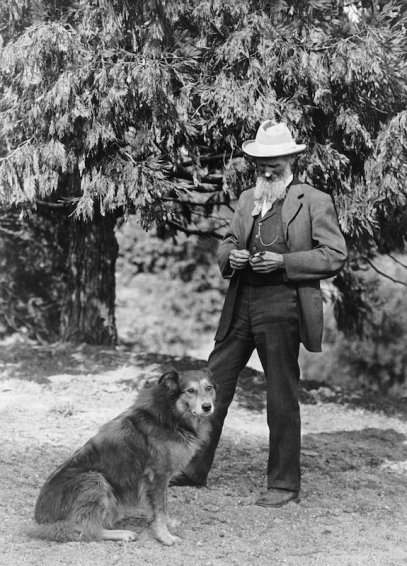
Underwood Archives / Getty Images A photograph of author and naturalist John Muir and his dog. California: c. 1900 The man who helped preserve many of the United States’ natural treasures was himself Scottish. John Muir emigrated to the United States as a child when his family decided they wanted to join the Disciples of Christ, a sect stricter than the Church of Scotland. The Muirs settled in Wisconsin and became farmers. “No other wild country I have ever known extended a kinder welcome to poor immigrants,” he later wrote. Though Muir struggled with his family’s religious beliefs, he found spiritual comfort in the great outdoors. A co-founder of the Sierra Club, Muir helped establish Yosemite National Park, though he maintained strong Scottish ties (and kept his Scottish accent) for the rest of his life.
Read more about Muir, here in the TIME Vault: Rush Hour in the Wilderness
-
Joseph Pulitzer (1864)
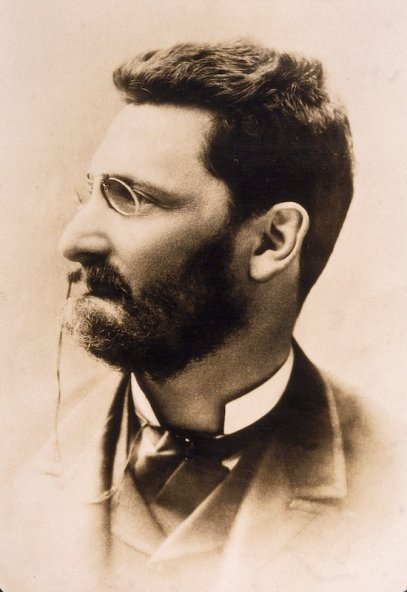
Museum of the City of New York / Getty Images Profile portrait of Hungarian-born journalist Joseph Pulitzer From helping establish modern American journalism to creating its most prestigious prize, Joseph Pulitzer is associated with American enterprise at its scrappiest. Born in Hungary, Pulitzer was lured to the United States by American military recruiters who wanted him to fill in for a rich draftee. After serving in the Union Army, he studied English and became a newspaper reporter, rising through the ranks and eventually buying New York World. A proponent of “yellow journalism,” he competed with newspaper magnate William Randolph Hearst and even served a term as U.S. Representative for New York. Before his death, he bequeathed the money that founded the Columbia School of Journalism. The prize that bears his name has been giving awards to journalists since 1917.
Read more about Pulitzer, here in the TIME Vault: An Editor
-
Irving Berlin (1893)
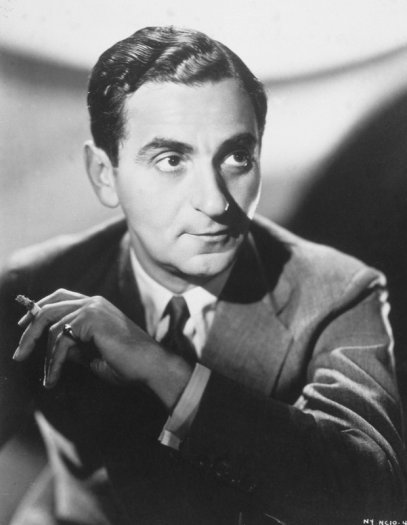
American Stock Archive / Getty Images circa 1920: Portrait of composer Irving Berlin The author of songs like “Alexander’s Ragtime Band,” “White Christmas” and even “God Bless America,” Irving Berlin is synonymous with American-ness. Born in Russian hut with a dirt floor, Berlin’s family fled the country after an anti-Jewish pogrom. He entered the country through Ellis Island and lived with his family in a Lower East Side tenement, where he became fascinated by ragtime and saloon music. While serving in World War I, he wrote “God Bless America,” then set it aside until Hitler came to power. It went on to become one of the most famous patriotic songs of all time.
Read more about Berlin, here in the TIME Vault: Irving Berlin, 1934
-
Rita Moreno (1936)
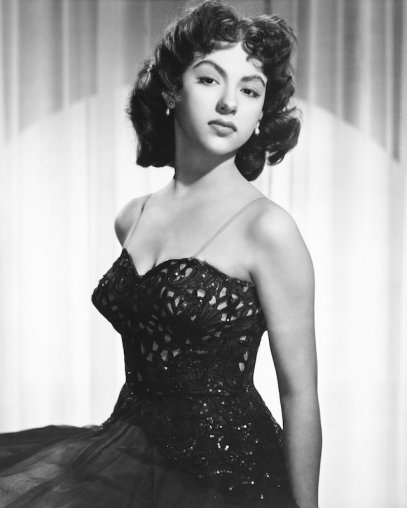
Silver Screen Collection / Getty Images Rita Moreno, Puerto Rican singer, dancer and actress, circa 1955. Rita Moreno is one of those elusive EGOTS—a performer who’s racked up Emmy, Grammy, Oscar and Tony awards for her showbiz chops. Born in Puerto Rico, she immigrated to the mainland with her seamstress mother. (Puerto Rico was already a territory at the time, but it was not widely considered to be part of the USA; Moreno also self-identifies as an immigrant.) They left behind her father and younger brother, both of whom she never saw again. In the Bronx, she dodged street gangs and honed her English while developing a talent for dancing and singing. She was on Broadway by age 13 and got her big break in show business as “the Spanish Elizabeth Taylor.” Despite being regularly cast in “ethnic” roles, she managed to carve out a niche for herself as a multitalented singer, dancer and actress. Best known for roles in West Side Story and Singin’ in the Rain, she still has an active career in film and television.
Read more about Moreno, here in the TIME Vault: The Fear of Losing a Culture
-
Madeleine Albright (1948)
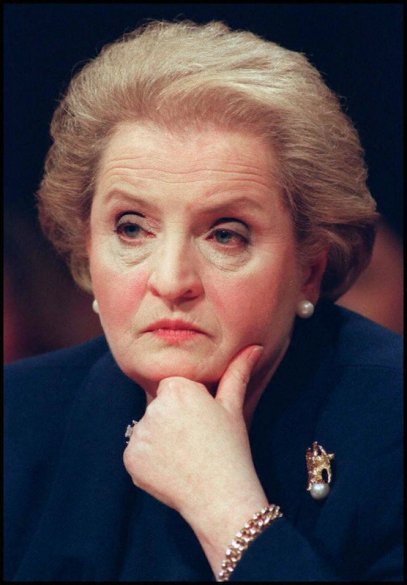
Chris Klepnis—AFP/Getty Images Secretary of State designate Madeleine Albright listens during her Senate confirmation hearings before the Senate Foreign Relations Committee on Capitol Hill in Washington in January of 1997 For years, the United States’ first female Secretary of State was the face of America all around the world. Albright herself was born in what was then called Czechoslovakia. The daughter of a diplomat with ties to the leader of the Czech independence movement, she was forced into exile when Hitler dissolved Czechoslovakia. Her family fled to the United Kingdom and eventually the United States. She spoke of her experience in her memoir and a recent commencement speech at Tufts University, where she mentioned her longing to fit in and be accepted as a young immigrant.
Read more about Albright, here in the TIME archives: Albright at War
-
Eddie Van Halen (1962)

Richard E. Aaron—Redferns/Getty Images Eddie Van Halen from Van Halen performs live on stage at the Palladium in New York City on May 12, 1979 Despite his all-American rocker image, Van Halen was born in the Netherlands. The son of a classical musician, he emigrated to the United States as a child and fit in at school. He soon found solace when, despite being unable to read music, he learned to play classical piano and, eventually, electric guitar. Van Halen eventually lent his name to the rock band known for songs like “Jump” and “Hot for Teacher”—songs that earned him and his brother, Alex, a spot in the Rock and Roll Hall of fame.
Read more about Van Halen, here in the TIME Vault: Heavy Metal Goes Platinum
-
Joni Mitchell (1965)
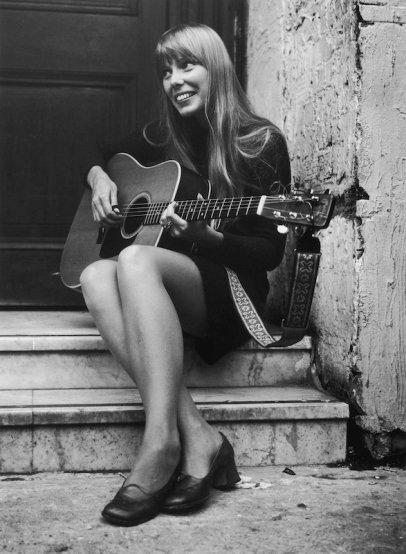
Central Press / Getty Images Joni Mitchell, strumming her guitar outside The Revolution club in London, 1968 For many of her fans, the name “Joni Mitchell” will forever be identified with songs about New York and California. But Mitchell came by her folk roots via small towns in Canada, in rural Saskatchewan. In 1965, the young folk singer met an American and went with him to the United States, marrying and divorcing him and honing her craft in Detroit, New York City and of course Los Angeles’ iconic Laurel Canyon. She eventually became an American citizen and has written songs like “Holy War,” a song about wars fought for religious reasons that is widely interpreted as critical of George W. Bush and American foreign policy.
Read more about Mitchell, here in the TIME Vault: Rock Women
-
Jerry Yang (1978)
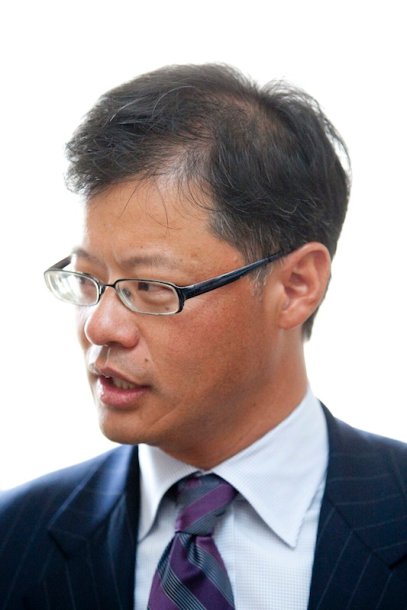
Bloomberg / Getty Images Jerry Yang, former chief executive officer of Yahoo! Inc., in Washington, D.C., U.S., on April 26, 2010. If you’ve heard of Yahoo!, you’ve probably heard of Jerry Yang—but you might not know that he only knew a single word of English when he arrived in the United States from Taiwan as a child. Yang, whose mother brought him to the United States because she feared Taiwan would soon be annexed by China, changed his name from Chih-Yuan to Jerry and eventually enrolled at Stanford. Math and computer science became one of Yang’s love, and in the early 1990s he began a website directory called “Jerry and David’s Guide to the World Wide Web.” The directory, which eventually became Yahoo!,was one of the Internet’s first popular web portals and eventually became a multi-billon dollar search engine (playing a big part in modern American technological and business history, and qualifying Yang for this list). Yang, who was ousted from Yahoo! in 2009, went on to become a tech investor and is currently worth about $1.82 billion
Read more about Yang, here in the TIME Vault: Click Till You Drop